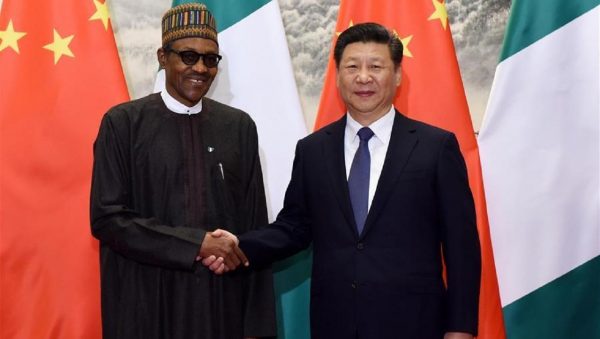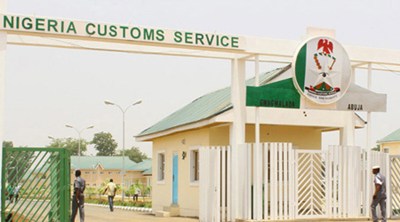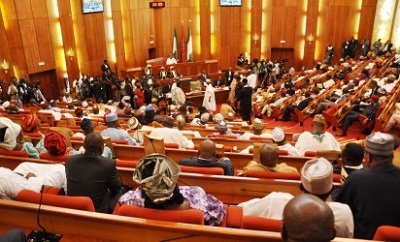Debt Management: Nigeria’s Fiscal Romance With China

“The greatest enemy of financial well-being is not poverty but debt” – Kent Nerburn
A recurring fiscal trend in the President Mohammadu Buhari administration has been borrowing to support his noble aspirations to swiftly correct the nation’s massive infrastructure deficits and most of these loans have been from Asian giants, China.
However, economists and other international financial institutions are becoming increasingly worried that the East Asian giant under a careful disguised “debt trap” diplomacy is burying many developing and poor countries in massive debt and then forcing the highly indebted countries to hand over some of their key infrastructures’ such as the case of Sri Lanka.
China’s cumulative loans to Africa since 2000 amounted to $124 billion by 2016, according to figures compiled by the China-Africa Research Initiative (CARI) at Johns Hopkins University School of Advanced International Studies in the United States but it has become frightening that
Angola, Ethiopia, Sudan, Kenya and the Democratic Republic of Congo have been the top beneficiaries of these loans. Angola’s oil-related loans worth $21.2 billion since 2000 total roughly a quarter of cumulative Chinese loans to the entire continent.
Djibouti is projected to take on public debt worth around 88 percent of the country’s overall $1.72 billion GDP, with China owning the lion’s share of it.
On March 2018, Djibouti signed a partnership agreement with a Singaporean company that works with China Merchants Port Holdings Co. or CMPort, the same state-owned corporation that gained control of the Hambantota port in Sri Lanka, to build the Doraleh Multipurpose Port.
Djibouti lies more than 2,500 miles from Sri Lanka but the East African country faces a predicament similar to what its peer across the sea confronted in 2017, after borrowing more money from China than it could pay back.
In both countries, the money went to infrastructure projects under the aegis of China’s Belt and Road Initiative.
Sri Lanka racked up more than $8 billion worth of debt to Chinese sovereign-backed banks at interest rates as high as 7 percent reaching a level too high to service. With nearly all its revenue going toward debt repayment, in 2017 after being pushed to the wall, Sri Lanka threw in the towel and handed over the Chinese-built port at Hambantota under a 99-year lease with China having a 70 percent stake.
Djibouti is projected to take on public debt worth around 88 percent of the country’s overall $1.72 billion GDP, with China owning the lion’s share of it, according to a report published in March by the Center for Global Development. At the end of 2016 China owned 82% of Djibouti’s external debt.
While Africa’s debt to China has become a concern for the region, Nigeria plans to obtain more external debt to execute some of the projects in the 2018 Appropriation Act.
Several decades after slave trade it has become worrisome that Nigeria may be heading down another lane of economic slavery as every Nigerian now owes China N15,000 in debt from the N3 trillion Nigeria has received from China in the last four years. This figure is just N3,000 shy of minimum wage (N18,000).
Nigeria’s debt comes from two huge tranches of aid from China: $3.1 billion in 2014 and $6 billion for infrastructure in the last three years, according to political analyst Theophilus Abbah.
It was James Lendall Basford who said; “A man in debt is a man in chains” but President Buhari dismissed insinuations that infrastructure projects being funded by the Chinese government is a “debt trap”
Buhari who was speaking from China during the 2018 Beijing Summit of the Forum on Africa-China Cooperation, where he signed a new loan of $328m, said; “I am happy to note that Nigeria’s partnership with China through #FOCAC has resulted in the execution of critical infrastructure projects valued at more than $5 billion, over the last three years”
We have completed and flagged off West Africa’s first urban rail system, valued at $500 million, in Abuja. Before then was the 180km rail line that connects Abuja and Kaduna, completed and commissioned in 2016, and running efficiently since then,” the President declared.
Over the years, loans have been used as weapon of underdevelopment of Africa by International Monetary Fund ( IMF) and World Bank. Loans from China are irresistible because they come with less strings attached on matters such as governance, democracy or human rights; but this is seemingly the Chinese phenomenon to conquer the world and Nigeria is walking right into it.







